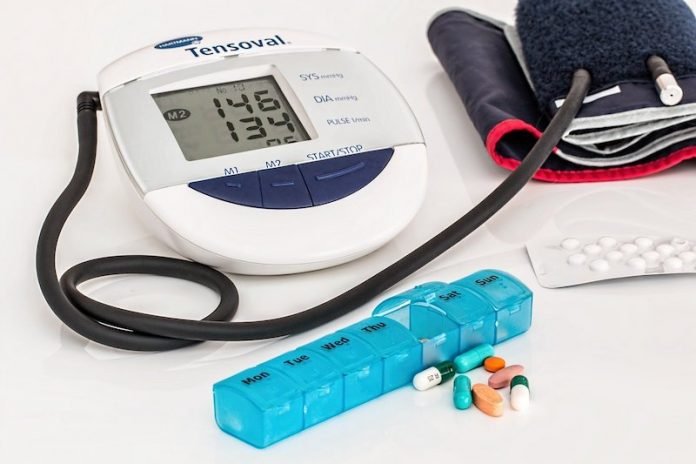
In a new study from Ewha Womans University, researchers found a link between the use of antihypertensive mediations and the development of psoriasis, a chronic inflammatory skin disease.
They reviewed data from 13 studies and found that angiotensin-converting-enzyme inhibitors, beta-blockers, calcium-channel blockers, and thiazide diuretics may increase the risk of psoriasis.
The authors of the analysis propose several mechanisms by which blood pressure medications may affect an individual’s risk of developing skin conditions.
The findings indicate that patients who take antihypertensive drugs should be carefully monitored for psoriasis.
According to Mayo Clinic, psoriasis is a skin disease that causes red, itchy scaly patches, most commonly on the knees, elbows, trunk and scalp.
Psoriasis is a common, long-term (chronic) disease with no cure. It tends to go through cycles, flaring for a few weeks or months, then subsiding for a while or going into remission.
If you care about high blood pressure, please read studies about which blood pressure number matters most? It depends on your age and findings of this common food may improve your blood pressure, blood sugar.
For more information about blood pressure health, please see recent studies about this 5-minute exercise can reduce high blood pressure effectively and results showing that common painkiller for headaches can harm blood pressure.
The study is published in the British Journal of Clinical Pharmacology. One author of the study is Hye Sun Gwak, PharmD, Ph.D.
Copyright © 2021 Knowridge Science Report. All rights reserved.



